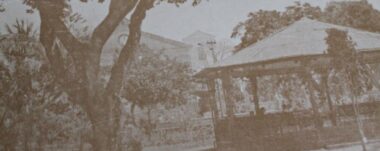First Names of People in Costa Rica

The proper nouns in Costa Rica reflect the different waves of cultural influence through the years. As Costa Rica is a country of mixed cultures and waves of immigration, the proper names of its inhabitants reflect this diversity.
Context
The history of proper names of people in Costa Rica is long and varied. The indigenous peoples of the region, such as the Bribri, Cabécar and Boruca tribes, had their own naming customs. For example, the Bribri people would give their children names that would describe their personality. The Cabécar tribe often named children after a deceased relative or other respected person.
As with many other cultures in Latin America, Spanish culture had an influence on Costa Rican naming customs. When the Spanish arrived in Costa Rica in 1522, they brought with them their language and a new system for naming children. For example, they replaced many indigenous words with Spanish words that were easier for them to pronounce, such as “Juan” instead of “Yuan”.
Later, in contemporary times, with the North American influence in Costa Rica, Costa Ricans began to give their children Anglo-Saxon or Anglo-Saxon-sounding names.
The Most Common Traditional Proper Nouns
According to several compilations of studies, the most common names are Valentina, Jimena, Santiago and Sebastián. On the other hand, this is a short list of names that have not lost popularity in recent years:
Traditional female names
- María
- Valentina
- Sofía
- Jimena
- Camila
- Valeria
- Mariapaz
- Valeria
- Mariana
- María Fernanda
- María José
- María Paula
Traditional male names
- José
- Santiago
- Sebastián
- Gabriel
- Daniel
- Felipe
- José Daniel
- Alejandro
- José Pablo
- José David
- Juan Carlos
- Mauricio

Invented Names Influenced by Anglo-Saxon Culture
In Costa Rica, contrary to other countries, there is no regulation on the names that parents give their children. Consequently, Costa Ricans can invent fantasy names, which results in very original names, with complicated spellings and quite far from traditional Spanish. Also, Costa Ricans are inspired by movies, actors, new trends and society in general. For example, it is common to name children after their favorite actor or sportsman.
A Passion for “Y”, “K” and “Z” and Fantasy Names
After the Spanish influence came the North American influence, which crystallized in the generalized use of the letter “y”. Thus “Valeria” became “Valery”, “Natalia” became “Nataly” and “Emilia” became “Emily”, “Antonio” became “Anthony”.
There are many proper names with the letters less used in the Spanish language (“y”, “k” and “z” for example): “Andrey”, “Keylor”, “Keyler”, “Heilyn”, “Yeslin”, “Yulitza”, “Yajaira”, “Yaritza”, “Yuli”, “Heylin”.
There is also a wide preference for “in” and “er” endings: “Eliécer”, “Maiker”, “Geiner” or “Heiner”, “Reiner”, “Olger”, “Greivin”. In addition, the desire to give an original name to their children has caused Costa Ricans to distort their own foreign names. Here are some examples: “Yeankarlo” (from Italian “Giancarlo”), “Franchesko” (from Italian “Francesco”), Yoselin (from French “Josseline”).
Others use surnames of world historical figures as proper names, for example “Edison” (from Thomas Edison) or “Bismark” (from Otto von Bismarck) or the name of a dictator such as “Lenin” or “Stalin”.
In other cases, the deformation of brand names is notable, as in “Maybellin” (from the cosmetics brand) or “Excel”.
Also, the success of American series and movies has made many Ticos give their children English names: Kevin, Tiffany, Allison, Kendall, Brandon, Kimberly, Hillary, Dylana, Walter, William, etc. Sometimes spelling them in an original way: “Dilan” (“Dylan”, in English), “Ashly” (“Ashley” in English), “Eimy” (“Amy” in English).
In other cases, parents use common English words as proper names. For example, “Minor” or “Mynor” or “Junior”.
And finally, some parents completely invent a fantasy name such as “Suheilyn”, “Delany”, “Shantany”, “Jazlyn”, “Keylin”, “Deilyn”, sometimes combining them with more traditional names such as “Sharliny Vanessa”.
In summary
- Spanish culture had an influence on the customs of Costa Rican names.
- North American culture has widely penetrated the proper names of Costa Ricans.
Authors: Zelda Walters and M. Barrantes for Sensorial Sunsets
Bibliography
http://www.asamblea.go.cr/sd/Otras_publicaciones/Diccionario%20de%20costarrique%C3%B1ismos.pdf
http://cuasran.blogspot.com/2007/11/nombres-indgenas-para-sus-hijos.html
https://servicioselectorales.tse.go.cr/chc/consulta_nombres.aspx
Navigate articles




